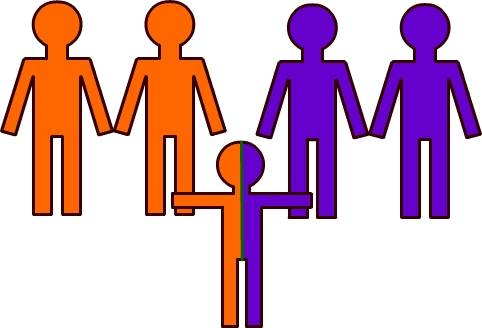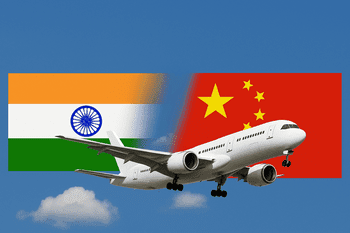
Adoption in China holds a unique place, with a rich cultural backdrop and a complex legal framework.
Navigating the adoption process in China requires a deep understanding of its cultural nuances, legal requirements, and practical considerations.

In this guide, we delve into the intricacies of adoption in China, providing insights, resources, and answers to frequently asked questions.
Understanding Adoption in China:
China has a long history of intercountry adoption, dating back to the late 20th century when it opened its doors to international adoption.
Today, China remains one of the leading sending countries for intercountry adoption.
The adoption process in China is governed by both domestic laws and international treaties, ensuring the protection of children’s rights and welfare.
Eligibility Criteria:
To adopt from China, prospective adoptive parents must meet certain eligibility criteria. These criteria may vary depending on the adoption agency and the specific requirements of Chinese authorities.
China has established adoption agreements with the following countries:
- Australia
- Belgium
- Canada
- Denmark
- Finland
- France
- Iceland
- Ireland
- Netherlands
- Norway
- Singapore
- Spain
- Sweden
- United Kingdom
- United States
- New Zealand
Prospective adoptive parents must also meet any additional criteria set forth by Chinese adoption authorities such as:
- Prospective adopters must be married for at least two years, or five years if either spouse has been previously divorced more than once, with marriage defined as between a man and a woman.
- Single individuals are no longer eligible to adopt Chinese children, aiming to ensure children have two parents and avoid parental loss.
- Both spouses must be aged 30-50, or 55 if adopting a special needs child, to mitigate the risk of parental loss or burdening children with eldercare.
- Adopters must be physically and mentally healthy, free from specific conditions such as AIDS, mental handicap, or severe diseases.
- Stable employment and a minimum annual income of $10,000 per household member, with assets totaling at least $80,000, are required.
- Educationally, both spouses must be high school graduates or equivalent, with fewer than five children under 18 in the household.
- No criminal records, history of domestic violence, substance abuse, or alcoholism allowed.
- Prospective adopters must understand adoption responsibilities, intercountry adoption risks, and agree to post-placement follow-ups and reports as required by the CCAA.
- Age and marriage duration requirements are dated from the submission of adoption application documents to the CCAA.
Adoption Agencies:
Working with a reputable adoption agency is crucial for a successful adoption journey in China.
There are several adoption agencies specializing in China adoption, both within China and internationally.
These agencies provide invaluable support and guidance throughout the adoption process, from paperwork and documentation to travel arrangements and post-adoption support.
Legal Process:
The legal process of adopting from China involves several steps: A CCAA-licensed adoption agency submits a complete application packet to the CCAA, including required documents and preferences.
The CCAA reviews it and may request additional documents. If approved, they match the adopters with a child, sending a referral with information and photos.
Adopters must respond within 45 days. If they accept, they receive an approval notice and can travel to China.
The adoption process varies by the child’s location. Prospective adopters meet with adoption registry and sometimes with the local Notarial Office.
They can request to meet the child before finalization. After various interviews, adopters donate $3000-$5000 to the Child Welfare Institute, sign agreements, and pay fees.
The local Notarial Office notarizes adoption documents, making the adoption official.
Finally, the Child Welfare Institute obtains a Chinese passport and exit permit for the child.
Cultural Considerations:
Understanding and respecting the cultural heritage of adopted children is essential in intercountry adoption, particularly in a country as rich in culture as China.
Adoptive parents should educate themselves and their families about Chinese culture, traditions, and language to help their adopted child develop a strong sense of identity and belonging.
FAQs:
- How long does the adoption process in China take?
The timeline for adoption in China can vary widely depending on various factors, including the age and health of the child, the specific requirements of Chinese adoption authorities, and the efficiency of the adoption process. On average, the process may take anywhere from one to three years from the initial application to bringing the child home. - What are the costs involved in adopting from China?
The costs associated with adopting from China can include adoption agency fees, government processing fees, travel expenses, and post-adoption services. These costs can vary significantly depending on the adoption agency, the specific requirements of Chinese adoption authorities, and other factors. Prospective adoptive parents should carefully review and budget for all potential expenses associated with the adoption process. - Can single individuals adopt from China?
No, single individuals are not eligible to adopt from China. - Are there specific requirements for adopting a child with special needs from China?
China’s adoption program includes a special focus on placing children with special needs or medical conditions. Prospective adoptive parents interested in adopting a child with special needs from China may need to meet additional eligibility criteria and provide documentation of their ability to meet the child’s specific needs. - What post-adoption support is available for families adopting from China?
Many adoption agencies specializing in China adoption offer post-adoption support services to families, including counseling, support groups, educational resources, and access to medical and developmental specialists. Additionally, there are online communities and support networks for adoptive families, providing a valuable source of connection and encouragement.
Conclusion:
Adopting from China is a transformative journey that brings together families from different corners of the globe. By understanding the legal process, cultural considerations, and practicalities involved, prospective adoptive parents can embark on this journey with confidence and compassion.
While the road may be long and challenging at times, the rewards of building a family through adoption are immeasurable, creating bonds that transcend borders and cultures.



